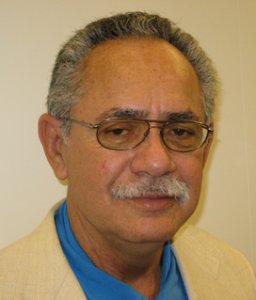Fewer diverse students enrolling in graduate programs
Posted by Elena del Valle on June 25, 2008

Rodolfo de la Garza, project director
Photo: Rodolfo de la Garza
According to a recently released study,”African American and Latino Enrollment Trends among Medicine, Law, Business, and Public Affairs Graduate Programs,” funded by the Ford Foundation and conducted by researchers from the Tomás Rivera Policy Institute (TRPI), few Latino and African American students are enrolling in medicine, law, business, and public affairs graduate programs. This is due in part to a low number of high school graduates among these ethnic groups and the bachelor’s degree entry requirement of the programs. Affirmative action and law suits related to affirmative action have also been contributors, according to the report.
The report was prepared by Rodolfo de la Garza, project director, and Sepehr Hejazi Moghadam, research associate, of the Tomas Rivera Policy Institute office at Columbia University. The researchers selected disciplines “where policy makers go and come from” and those they believe most influence the nation. They approached the top 10 public and private schools and programs in each category to request interviews and information. The study took place over an 18 month period beginning in 2006.
“Many of the universities wouldn’t respond or said they don’t provide that kind of study,” said de la Garza about how the universities reacted to project. “Ford gave a rather handsome grant of more than $15,000.”
Target Latinos effectively by anticipating changes in the market with
“Hispanic Projections with 2007-08 update” audio recording

Presenter Roger Selbert, Ph.D.
Find out
- About Latino buying power growth in the future
- How Latino market growth compares with other markets in the U.S.
- What drives the rise of Latino economic clout
- Who should target the Latino market
- What is the size of the Hispanic affluent market
- If the luxury Latino market is growing
Stay ahead of your competion with “Hispanic Projections”
The researchers believe the elimination of affirmative action has decreased the number of underrepresented students enrolling in medical schools. Based on the data they were able to gather, African American applicants who applied to the top 10 public and private medical schools declined by 25 percent from 5,379 in 1995 to 4,033 in 2001. Latino applicants to the same schools decreased 38.6 percent, from 2,769 in 1995 to 1,700 in 2001. Together, African American and Latino enrollment in the nation’s top 10 public and private medical schools declined by 11.2 percent and 27 percent respectively.
As an example of the drop in law school registrations because of California’s anti-affirmative action movement the report points to California law schools. From fall 1995 to fall 2006, the number of admitted African American and Latino students in University of California’s three law schools declined 28 percent.
While there was an increase in undergraduate business degrees awarded to African American and Latino students over the past nine years, these degrees rose from 9 percent of total degrees in the country between 1995 and 1996, to 15 percent between 2003 and 2004; the researchers point out that the growth in enrollment does not match the growth of the African American and Latino markets, currently 25 percent. There are more African Americans and Latinos graduating with MBA degrees than other master’s degrees and this number once again do not reflect the growth of the African American and Latino populations in the United States.
On the good news front, more diverse students are graduating with public affairs master’s degrees which train students for careers in government, business, media, nonprofit organizations, non governmental and international organizations. Master’s degrees in traditionally underrepresented groups have increased from 18 percent in 1996 to 25 percent in 2004. Once again the increase is inconsistent with the growth of the African American and Latino populations nationwide.
Founded in 1985, the Tomás Rivera Policy Institute (TRPI) advances informed policy on key issues affecting Latino communities through objective and timely research contributing to the betterment of the nation. TRPI is an affiliated research unit of the University of Southern California School of Policy, Planning, and Development and is associated with the Institute for Social and Economic Research and Policy at Columbia University.
Find out which Latino markets are booming with
“The Next Step: Secondary Latino Markets” audio recording

Presenter Dora O. Tovar, MPA
Click here for information on Secondary Latino Markets










